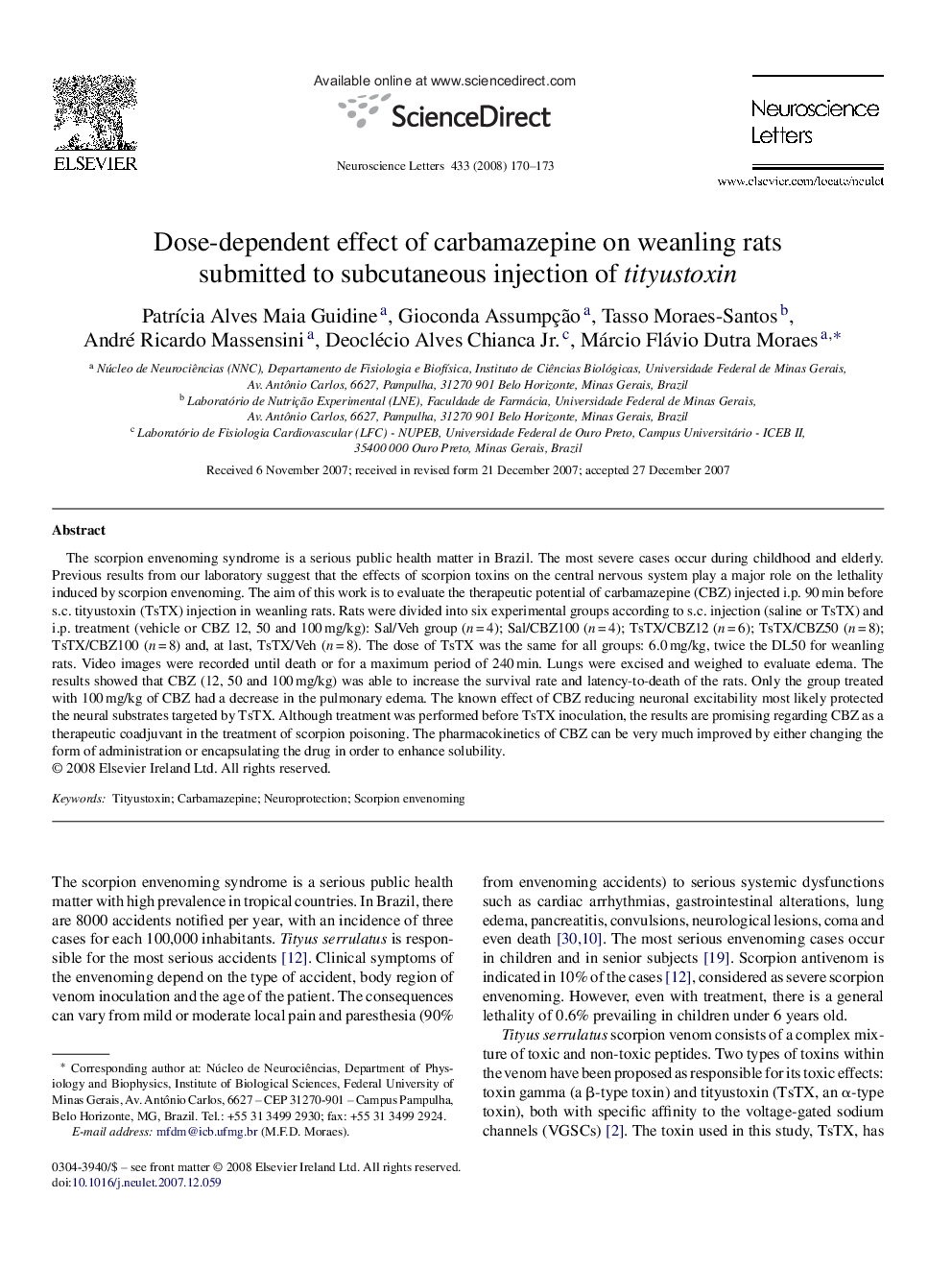| Article ID | Journal | Published Year | Pages | File Type |
|---|---|---|---|---|
| 4348622 | Neuroscience Letters | 2008 | 4 Pages |
The scorpion envenoming syndrome is a serious public health matter in Brazil. The most severe cases occur during childhood and elderly. Previous results from our laboratory suggest that the effects of scorpion toxins on the central nervous system play a major role on the lethality induced by scorpion envenoming. The aim of this work is to evaluate the therapeutic potential of carbamazepine (CBZ) injected i.p. 90 min before s.c. tityustoxin (TsTX) injection in weanling rats. Rats were divided into six experimental groups according to s.c. injection (saline or TsTX) and i.p. treatment (vehicle or CBZ 12, 50 and 100 mg/kg): Sal/Veh group (n = 4); Sal/CBZ100 (n = 4); TsTX/CBZ12 (n = 6); TsTX/CBZ50 (n = 8); TsTX/CBZ100 (n = 8) and, at last, TsTX/Veh (n = 8). The dose of TsTX was the same for all groups: 6.0 mg/kg, twice the DL50 for weanling rats. Video images were recorded until death or for a maximum period of 240 min. Lungs were excised and weighed to evaluate edema. The results showed that CBZ (12, 50 and 100 mg/kg) was able to increase the survival rate and latency-to-death of the rats. Only the group treated with 100 mg/kg of CBZ had a decrease in the pulmonary edema. The known effect of CBZ reducing neuronal excitability most likely protected the neural substrates targeted by TsTX. Although treatment was performed before TsTX inoculation, the results are promising regarding CBZ as a therapeutic coadjuvant in the treatment of scorpion poisoning. The pharmacokinetics of CBZ can be very much improved by either changing the form of administration or encapsulating the drug in order to enhance solubility.
